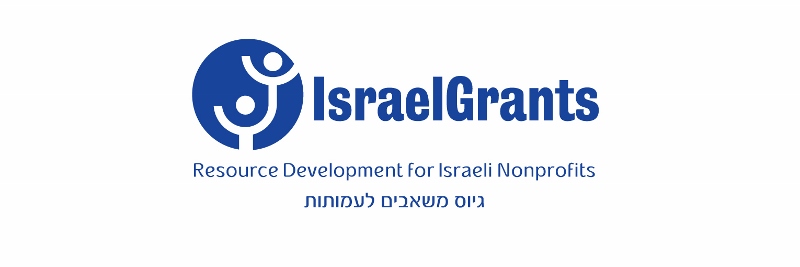עליזה מאיר אפשטיין, מאמנת אישית מוסמכת
האם המשפחה חייבת להיות קרבנו של המגזר השלישי? האם היא צריכה לסבול בגלל שאחד מראשיה מעוסק במוסד ללא כוונת רווח? בתשובתי לשאלה זו, ברצוני להתייחס למשפחה הבריאה כמרכיב חיוני להצלחתם של מנהלים ועובדים במגזר השלישי.
עובדה: מנהלי וצוותי מלכ"רים לרב אינם דואגים לעצמם! מדובר בשמירה על בריאותם הפיזית והנפשית. הדבר מתבטא באופן ברור בהעדר חופשות שנתיות/מחלה, בצמצום זמן הבלוי עם יקירים, ובחוסר שגרה בריאה. כתוצאה מכך, רמת הסיפוק ושביעת הרצון היומיומית יורדת, העייפות וחוסר הסבלנות גוברים, והמחקר הרפואי מבשר לנו שמערכת החיסון נפגעת*.
מצב זה מוביל לשחיקה הפוגעת בתפקודם במקום העבודה, אך גם משפיעה על יחסי אנוש מחוץ לעבודה, ובמיוחד בהשקעה בקשרי המשפחה.
.jpg) אנשי המגזר השלישי אינם היחידים הסובלים משחיקה במקום העבודה. תרבות העבודה המלווה את החברה ההישגית רווייה בדוגמאות כשה"שורה התחתונה" חשובה יותר מאיכות החיים. אך כאן נוצרת פרדוקס: צוותי הארגונים המוקדשים להטבת מצבו של הזולת אינם מטיבים עם עצמם, וככל הנראה לעיתים קרובות, גם אינם מטיבים עם משפחותיהם.
אנשי המגזר השלישי אינם היחידים הסובלים משחיקה במקום העבודה. תרבות העבודה המלווה את החברה ההישגית רווייה בדוגמאות כשה"שורה התחתונה" חשובה יותר מאיכות החיים. אך כאן נוצרת פרדוקס: צוותי הארגונים המוקדשים להטבת מצבו של הזולת אינם מטיבים עם עצמם, וככל הנראה לעיתים קרובות, גם אינם מטיבים עם משפחותיהם.
העבודה בעמותה המסייעת לאוכלוסיה נחשלת או סובלת מעניקה לעובד או למנכ"ל הרגשה של משמעות עמוקה. רבים מאיתנו מוכנים לוותר על משכורת גבוהה יותר תמורת סיפוק כגון זה. אך בתמורה, אנו חושפים את עצמם לתרבות ארגונית שאיננה תומכת בדאגת האדם לצרכיו ולביתו.
הסיבות לכך מורכבות, אך ניתן לסכמן בכך: ארגון המסייע לקידום החברה מעלה על נס את צרכיהם של הנזקקים ודורש מהנרתמים למאמץ הקרבה עצמית לשם טובת הכלל. בכך, כל סטייה מהמאמץ היא מעשה אנוכי, בין שבמודע בין שבבלתי-מודע. "איך אוכל להרשות לעצמי להינות מחופשה/בריאות/משפחה כשאני פועלת בשמם של מסכנים ממני?" שואלת קליינטית, מנכ"לית עמותה שהיא גם אם ל-4 ילדים...
רבות נכתב על הצורך באיזון בין עבודה למשפחה. כשמדובר בעבודה במגזר השלישי, הבחירה הערכית לשרת את הציבור נכנסת למשוואה: האם שני תחומי המחוייבות והאחריות האלה מתחרים זה בזה?
.jpg) תשובתי היא בפירוש - לא. אותה שחיקה הפוגעת בתפקודו של מנהל המלכ"ר, פוגעת גם בקשרי אנוש מחוץ לעבודה ובמרכזן, המשפחה. דהיינו, מניעת שחיקה בעבודה תסייע גם לארגון וגם למשפחה. ומעבר לכך, משפחה בריאה עשוייה לתרום לירידה בשחיקה בעקבות התמיכה שהיא מעניקה לאותו מנהל. בעצם, משפחה בריאה יכולה, בין השאר, לבלום את מעגל הקסמים של השחיקה.
תשובתי היא בפירוש - לא. אותה שחיקה הפוגעת בתפקודו של מנהל המלכ"ר, פוגעת גם בקשרי אנוש מחוץ לעבודה ובמרכזן, המשפחה. דהיינו, מניעת שחיקה בעבודה תסייע גם לארגון וגם למשפחה. ומעבר לכך, משפחה בריאה עשוייה לתרום לירידה בשחיקה בעקבות התמיכה שהיא מעניקה לאותו מנהל. בעצם, משפחה בריאה יכולה, בין השאר, לבלום את מעגל הקסמים של השחיקה.
כמובן שיש עוד הרבה מה לעשות בכדי למנוע שחיקה בעבודה במגזר השלשי, אך המשפחה מהווה מכנה משותף וחיוני לרב הנוגעים בדבר. עת בחרנו להקים משפחה ולטפחה, בחרנו בדרך רגשית-חברתית-רוחנית לקדם קבוצה קטנה אך משמעותית בדרכה בחיים. מקורה של החמלה מבפנים החוצה. ללא חמלה לנו ולמשפחתינו, כיצד תיווצר חמלה לנזקקים אותם אנו שואפים לשרת?
עליזה מאיר אפשטיין הינה מאמנת אישית המתמחה בתחום האימון המשפחתי. היא עובדת עם נשים וגברים, בעברית ובאנגלית. יש לה נסיון רחב עם בעלי משפחות, אנשי המגזר השלישי, אמהות חד-הוריות ואנשים בתקופות מעבר משמעותיות.
• לסקירה על המחקר בנושא ראה
Stress Weakens the Immune System: http://www.apa.org/research/action/immune.aspx



.jpg)
.jpg)